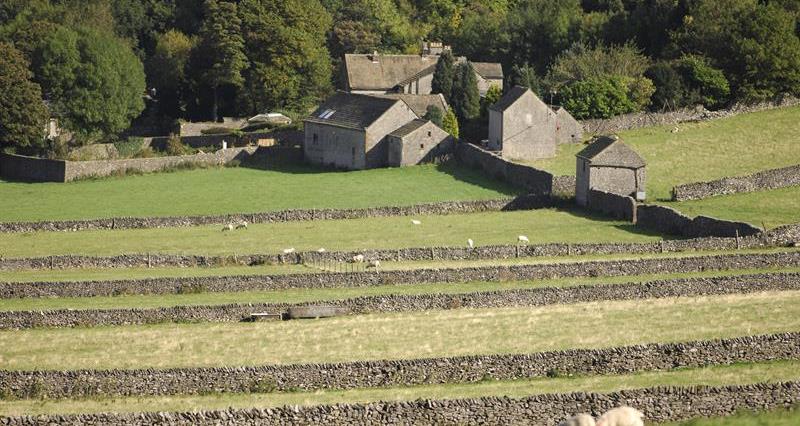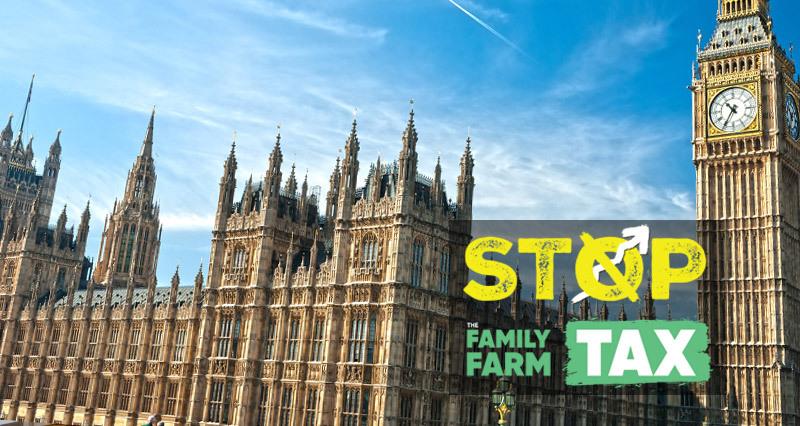�ʼһ���has called on the Chancellor to invest in the UK’s food security, which this government has repeatedly stated is critical to national security, in the upcoming Spending Review.
What is a Spending Review?
The Spending Review, which belongs to the Treasury and is ultimately headed up by the Chancellor Rachel Reeves, sets out the government’s plans to tax and spend until around 2030.
It’s due to conclude in June and we expect there will be a speech from the Chancellor, setting out how the total government spending will be spent between 2027 and 2030.
This includes money spent on departmental staff (including government agencies such as the RPA), day-to-day spending such as ELMs, and capital spending such as border biosecurity infrastructure.
What is the NFU calling for?
There are five key areas which the NFU believes will help the UK’s food and farming sector to grow, and is asking the Treasury to support in the Spending Review.��
In calling for these key asks, NFU President Tom Bradshaw said: “We know the Treasury is having to make difficult decisions, but this is not money for money’s sake. Investment in homegrown food production now will help secure UK food security in the future. It will secure jobs and the economic contribution of the sector, as well as kickstart rural economic growth by breaking down barriers to opportunity for rural communities.
“The government has been talking about a new deal for farmers. A Spending Review that supports a growing, resilient, sustainable, biosecure and technologically advanced farming sector is the lynchpin of that new deal.”
Read more about these five areas below:
1. A UK-wide annual agriculture budget of £5.6 billion
A long-term policy approach on the farming budget will enable a resilient, growing and sustainable agricultural sector that can plan to invest in the future. Without this, it is unclear how the sector will be able to meet the government’s targets and commitments across nature, climate, productivity and food security.

A multi-year future farming budget totalling £4 billion per annum in England will be crucial to delivering government goals. This will allow farming businesses to plan for the long term, to invest and grow.
This breaks down to:
- around £2.7 billion to meet the government’s environmental goals
- £615 million for driving productivity
- £720 million to support the economic stability of agricultural businesses
This would factor in funding for FBILs (Farm Business Investment Loan scheme) and introduce a new and improved Fruit and Vegetable Aid scheme as well as adequate funding for Defra to deliver the Farming and Countryside Programme.
Respecting the nature of devolved government, we estimate this would translate to a UK-wide budget of around £5.6 billion.
2. A cross-government, fully funded biosecurity plan
Biosecurity is an important part of national security.
A biosecure Britain requires resource in order to prevent disease outbreaks and, when necessary, to tackle the latest threats. Without this, we remain at risk of another major disease outbreak that threatens entire sectors, alongside new risks exacerbated by climate change and increased exposure through inadequate border control and import checks.
Sufficient investment is needed for:
- £1.5 million towards a Virus Yellows Resilience Fund. The government’s decision not to grant Emergency Authorisation for the use of Cruiser SB seed treatment in 2025 means that this year’s crop will again be without effective means of control for Virus Yellows.
- Fully funding the Bovine TB plan.
3. An end-to-end R&D budget for agri-tech
A revolution in British agri-tech innovation is needed to drive productivity and to produce food in a smarter, more sustainable way.
�ٱ�ڰ���’s new funding within the Farming Innovation Programme was well received by the NFU last week, and we believe a dedicated R&D budget would add even greater value and drive investment. Without this, British farmers and institutions could fall behind international competitors.
Modernising our approach to data management and investing in greater digitisation will also drive efficiencies and improve outcomes.
This includes:
- Creating digital passports for the crop sector.
- Developing a single livestock information system.
��
4. A sufficient budget to invest in flooding management
With flooding events becoming ever more frequent, we need a future proofed investment plan to ensure the maintenance and expansion of our flooding defences in order to keep communities safe.
Without this, families and businesses will continue to pick up the pieces of their homes and livelihoods each winter, and at great cost to the government.
We are calling for:
- Fair payment for flood storage to farmers in regularly flooded areas.
- Long-term investment in a national programme for water storage and drainage systems.
- £75m for IDBs (internal drainage boards) to continue their work reducing flood risk.
5. Review the NFU’s clawback proposal for Inheritance Tax changes
One thing the Chancellor must do to restore confidence and enable investment in the farming sector is to do the right thing on the family farm tax.
Without this, unaffordable bills could tear family farm businesses apart and dry up any possible investment or growth opportunities.
Read about our alternative approach to the government’s planned reforms to APR and BPR, known as a ‘clawback’ mechanism.
Safeguard the future of our food
With geopolitical tensions high, a rapidly changing trading environment and climate change disrupting food supply chains across the world, the NFU is highlighting how investment in homegrown food production today can help avoid food insecurity tomorrow.
It comes in the wake of the National Preparedness Commission’s warning that the UK’s food security is in a ‘precarious state’.
NFU President Tom Bradshaw said farm businesses are the “foundation” of the UK’s food and drink sector, the country’s biggest manufacturing sector, contributing £148 billion to the national economy and supporting more than 4 million jobs.
He added: “Make no mistake, global instability and a more unpredictable climate is making homegrown food production harder, while also putting pressure on food supply chains around the world.
“We simply must invest in food production to safeguard the future of our food. Failure to do this will lead to reduced food production at home, forcing a reliance on imports which, as an island nation amid serious global volatility, is not a smart move.”
Within our Spending Review submission, the NFU has also called for:
- A further round of the REPF (Rural England Prosperity Fund).
- Ensure the Police Allocation Formula is fair towards rural needs and maintain National Rural Crime Unit funding.
- Prioritise the Shared Rural Network and completing it by the end of 2025.
- Ensure a well-resourced planning system.
- Investment in the systems needed to deliver local grid connections.
- Investment in the network of agri-food and drink attachés.
- Match fund the AHDB levy to support export potential.







